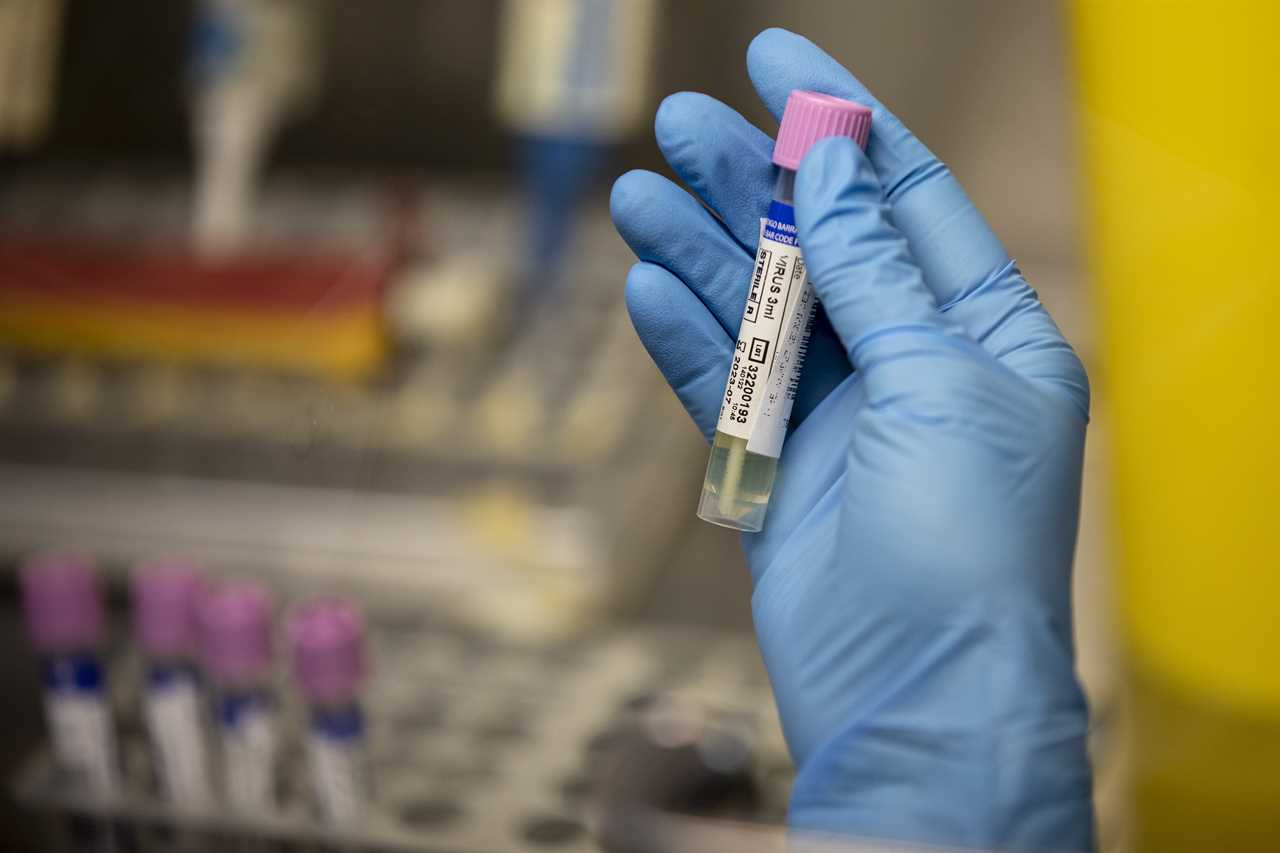
New outbreaks of monkeypox — which now include over 1,000 cases across 29 countries — are leading to fears that the virus will continue spreading in regions with no previous infections.
The Centers for Disease Control and Prevention suggests that travelers take more precautions than normal to avoid infection. Though the agency said risk to the public is low, it recommended avoiding contact with people who are sick or have lesions as well as wild animals that may carry the disease. It said those traveling to places reporting a significant number of cases, those who work with animals and men who have sex with men are at higher risk of infection.
The new spread prompted researchers from around the world to discuss how to move forward. Here’s what is known about the virus.
What is monkeypox?
Monkeypox is a virus that spreads from some animals — suspected to be rodents and primates — to humans, researchers said. It’s often recognized by lesions on the skin and can cause other symptoms, including fever and swollen glands.
Officials at the Centers for Disease Control and Prevention and the World Health Organization are concerned because of the virus’s recent spread outside the few countries where it is endemic.
The CDC reported nearly 900 cases in Europe and 30 cases in the U.S.
Maria Van Kerkhove, who leads emerging diseases and zoonoses teams at the WHO, said last week it is likely that widespread human-to-human transmission has been going on for several weeks — if not months. “We need rapid action,” she said.
Where is it endemic?
The virus has been found in west and central Africa for decades — including in Benin, Cameroon, the Central African Republic, the Democratic Republic of the Congo, Ghana, Ivory Coast, Liberia, Nigeria and Sierra Leone. Researchers said better surveillance is needed to learn if the virus is endemic but undetected in other nearby countries.
Some endemic countries like Nigeria have seen an increase in cases in recent years, with researchers pointing to waning immunity against smallpox and climate change — causing more contact with animals — as likely causes of the increase.
How does it spread?
At this point, experts believe that prolonged skin-to-skin contact is key to transmission — and note that monkeypox doesn’t spread nearly as quickly or easily as Covid-19 or other airborne viruses.
Is it deadly?
There are two monkeypox virus groups, called clades: the West African clade is a milder form of the virus, while the Central African clade causes more severe disease and is thought to be more transmissible, according to the WHO. The geographical division between the two clades has been in Cameroon, the only country to have had both clades.
Outside of endemic countries, no deaths have been reported from monkeypox to date. The West African clade, which is responsible for the current outbreak outside of endemic countries, has a mortality rate of under 3 percent. The mortality rate for the Central Africa clade could be higher, estimated at between 1 and 10 percent of cases. But the WHO warned that these figures are based on infections among a younger population in African countries, compared to the West.
What vaccines exist for monkeypox?
There are several vaccines that could protect against monkeypox — though some were originally designed for smallpox.
The FDA in 2007 approved Emergent’s one-dose ACAM2000 vaccine against smallpox and in 2019 Bavarian Nordic’s two-dose Jynneos vaccine to prevent smallpox and monkeypox in adults. But ACAM2000 can cause severe side effects, such as heart or brain inflammation, blindness and fetal deaths, according to the FDA, so the vaccine’s use is limited.
As for Jynneos, Bavarian Nordic requested the FDA approve it only for smallpox, but the agency approved it for monkeypox, too, because the two viruses belong to the same family and vaccines for one offer cross-protection, said Marion Gruber, vice president for public health and regulatory science at IAVI, a nonprofit research organization.
Though the U.S. and other countries have large stockpiles of smallpox vaccines, their side effects and other risks have made newer vaccines — in relatively short supply now — much preferred to the hundreds of millions of older doses in stockpiles.
Will I need to get a vaccine for monkeypox?
Probably not. Though shots are key tools in stopping the spread of the disease, WHO officials have said only those who have been exposed or are at a high risk of being exposed should be vaccinated.
What treatments are available?
There are a few antiviral options for monkeypox, researchers said.
Tecovirimat is a strong candidate, they said, though it needs to be given early, less than six days after exposure, according to existing trials. The drug has shown to be safe, though it cannot be taken alongside some medications, and has been authorized in the EU for smallpox and monkeypox. The FDA authorized the drug for smallpox. Researchers, however, worry about the risk of viruses becoming resistant to the drug in the future.
Brincidofovir is another candidate, though it does not have approval in the EU. It has FDA approval for smallpox under the animal rule, which allows drugs to be approved with data from animal studies when human trials are deemed unethical.
What do we still not know?
It’s not known which animals carry and spread the virus. Researchers will also shift their attention to understanding the reasons for the unpredicted transmission and new hotspots.
Even some basic characteristics of monkeypox — which treatments work best, how the virus spreads and how severe the disease can become — require more research.
----------------------------------------
By: Daniel Payne and Carmen Paun
Title: What researchers do — and don’t — know about monkeypox
Sourced From: www.politico.com/news/2022/06/07/researchers-monkeypox-00037620
Published Date: Tue, 07 Jun 2022 11:03:56 EST






